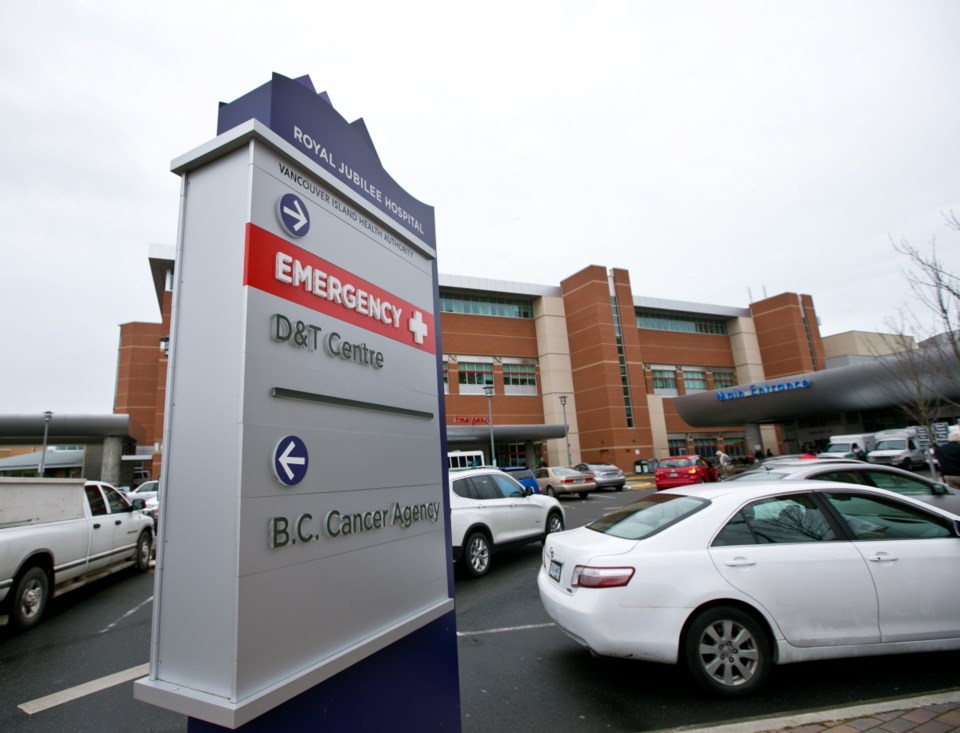Health-care unions say they will protest cuts in health-care transfers to provinces today, the first anniversary of the end of Canada’s Health Accord.
The 10-year-agreement between the federal government, provinces and territories provided stable federal funding for health care and set national standards for things like waiting times, home care and prescription drugs.
The accord expired March 31, 2014. Payments to provinces are now made on an equal, per-capita cash basis.
The rally at Royal Jubilee Hospital’s Begbie Hall is part of a multi-city, national day of action drawing attention to the impact of the accord’s expiration and $36 billion in reductions in federal health-care transfers over the next decade to B.C. and other provinces, said Neil Monckton, spokesman for the Hospital Employees’ Union.
For British Columbians, federal cuts to health transfers mean $5 billion less for hospitals and other health services over that 10-year period, he said.
The rallies are planned in more than 25 communities in B.C.
In Victoria, a small rally is planned for noon outside Begbie Hall at 1952 Bay St. A bigger rally is expected to be held in Vancouver near Vancouver General Hospital.
Michael Bolkenius, press secretary for Health Minister Rona Ambrose, said health transfers by the federal government to provinces and territories will reach $40 billion annually by the end of the decade.
“We remain committed to increasing health transfers year after year after year,” Bolkenius said in an email. However, more money won’t fix inefficiencies in the health-care system, he said. As part of efforts to ensure the system is sustainable, he said, Ambrose launched the Advisory Panel on Healthcare Innovation last June. The goal is to identify innovations with the potential to reduce growth in health-care spending, while improving quality and accessibility of care. The panel is expected to file its report by June.
Victoria MP Murray Rankin, the NDP’s health critic, said the Conservative government let the accord expire last year after having only modest success in reducing surgical wait times and creating better electronic health records. It also ended without having created a national pharmaceutical strategy.
As a result, there are some people, mostly seniors, who struggle to pay for, or go without filling, necessary prescriptions, Rankin said.
“What we are seeing is the consequence of a lack of federal leadership,” Rankin said. “They are downloading the costs to the provinces.”
Rankin agrees more money is not the only answer. He said ensuring provinces adhere to the Canada Health Act — withholding transfers if they don’t — and funding innovation are also needed, for example improving electronic health records and sharing best practices among provinces.
“We can do so much better,” Rankin said.
“A change of government is what’s required if they won’t sit down and work with the provinces to resurrect health accords.”
Federal NDP Leader Thomas Mulcair has pledged that if his party forms government, he will renew the Health Accord and return the $36 billion in funding to the provinces, Rankin said.
Health-care advocates at the rally will be demanding action by federal politicians to restore the funding.
The rally is organized by the HEU, the Canadian Union of Public Employees, the Canadian Health Coalition and the B.C. Heath Coalition.



